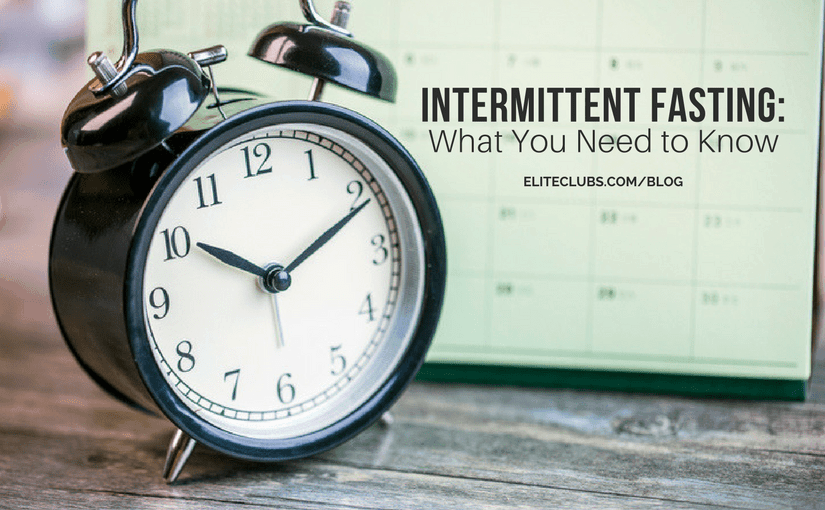
The question at hand is whether or not Intermittent Fasting is a good approach to weight loss? This is a dietary approach that restricts food and sweetened beverages, typically for 2 to 7 days at a time to provide a metabolic cleanse, of sorts, and to promote weight loss. There have been animal studies and preliminary human studies that this methodology may be useful. If so, then we have one more method to help us reduce our risk factors of diabetes, cancer, and heart disease.
Of course, more study is needed to determine any real value to this method of weight loss. Especially important is the discovery of how intermittent fasting compares to other calorie restricted programs and outcomes. Regardless, intermittent fasting has gained momentum and some dieters have had some real success with the concept.
The reason why it is so popular is because it is short term, for one, in its duration, and also because it may just be enough to create a fluid and caloric change in the body to provide a quick weight loss, even if it is a day or two at a time. But let’s take a look at the results and who, in particular, is using the system for some stated results.
Fasting for Fitness Buffs:
For any fitness participant that wants success not only through performance, but also through their on-going nutrition plan, this could provide them with negative performance or exercise stamina. Yet, it may also be beneficial for those that need a “quicker start.”
Only a few studies have been done and they are often conducted during periods of religious observances, where food is removed from sunrise to sunset. At this point the degree with which this may have any impact on outcome to fitness is unknown. It is true that some individuals will be impacted by a fast quicker than others and some individuals may “feel” energized by the fasting impact on their bodies. Most nutritionists agree that very few clients will be able to do the fast for a sustained period of time, therefore it is over before any real data is collected.
What science has been able to determine from studies is that intermittent fasting, of course, needs to be done with these ideas in mind:
- Keep to the limited time span of the fast, keep up with the prescribed regimen
- Afterwards, go back to your regular diet plan
- Return to regular fitness, sleep schedules, and training regimens
Fasting for the Everyday Active Person:
For most individuals who are active on a daily basis, intermittent fasting may still present some challenges, for example, dizziness, tiredness, and even nausea. And their workouts may suffer as well. Yet, others have mentioned that they are feeling energized after a fast and have actually portrayed a “less sluggish” feeling. The notion that this limited version of a weight loss diet may not be such a bad idea because it gives individuals the feeling of less gastrointestinal fullness, and the energized feelings that comes from a “cleanse” routine.
As a Registered Dietitian, I have never really worried too much when individuals mentioned that they would like to try a fast diet, for 1-2 days. I did not feel they would be on the fast “forever,” and also because I have learned that if clients want to give something a try, they should do it. There are more structured, and therefore, more restricted dietary forms of fasting that need a professional “look-see” at the eating plan and what individuals are being asked to give up in terms of food.
Here is a few of these that you may want to carefully evaluate before trying:
- Sustained total liquids, thin soups and juices, with smoothies with protein powder, water for one day at a time,
- Moderate calorie level fast; with energy products, and nutrients added, usually for 1-10 days, with exercise encouraged,
- Most advanced, is a very low calorie fasting diet (500-700) calorie diet, no exercise, protein products as some meal replacement and metabolic enhancers added. Lots of fluids.
These decisions are all up to you, and if you would like, please check in with your club Dietitian for more information. I particularly like to have the opportunity to go through the eating plans that come with the dietary systems. One example recently, was a woman who was doing a 28 days semi-fast program of 700 calories plus two products for support. After one week, she called me and said she could not eat all the fish on the diet. I had not seen the diet and did not know that fish was recommended every day of the diet. So, for this one, it did not work!
Written by Rita Larsen, RDN, CD; Elite Sports Clubs Nutrition Educator & Diet Counselor
Rita is certified in Positive Psychology, University of Penn; has a BS in Dietetics from Kansas State University; and an Internship and Masters at the Indiana University Medical Center.
Schedule a Nutrition Consultation
1 Comment
My Dr
Wants me to do this